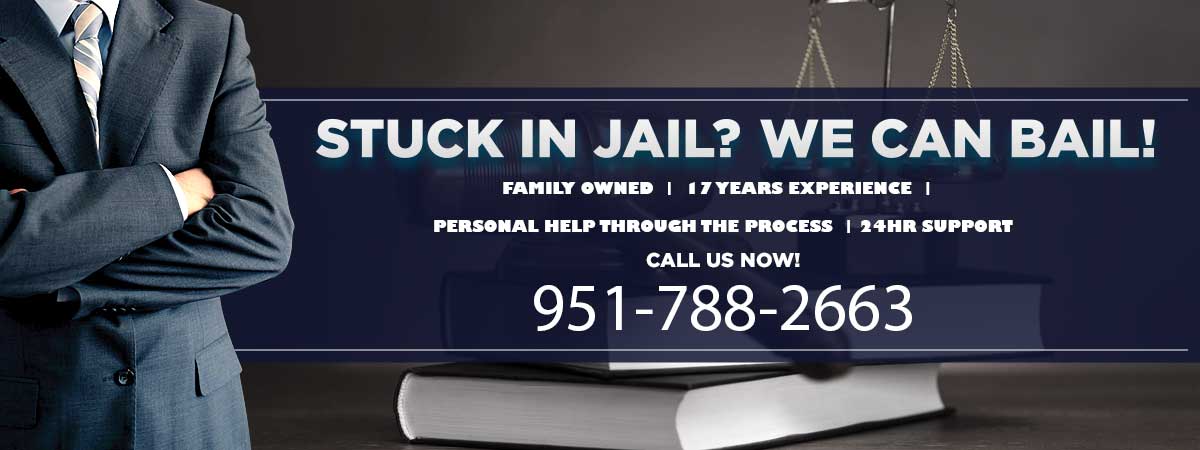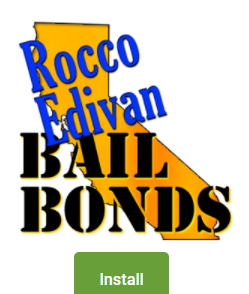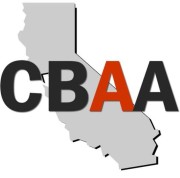Bail is a constitutionally guaranteed pretrial release option, and this right ensures that you can await trial outside of custody. However, if you cannot pay the entire bail amount, this should not be the reason you or a loved one remains in custody. A bail bondsman ensures you get the much-needed help by covering the bail in exchange for a small percentage of the total amount. This means you can secure your release for a fraction of the bail cost.
Remaining out of jail allows you to prepare a strong defense, work, and care for your family as the case progresses. You risk being imprisoned for a long time without bail assistance, affecting your personal life and professional career. At Riverside Bail Bonds, we understand this. We offer fast Garden Grove bail bonds service to bail you out. Reach out to us for financial assistance as you work on your defense.
The Arrest and How Bail Is Determined
After police officers take you into custody, they will take your mugshots and fingerprints and complete the necessary reports. You will then remain in custody, awaiting your arraignment. The police or the jail staff will evaluate your case, and sometimes, they will look at a bail schedule that dictates the standard amount for specific charges. In some minor offenses, like misdemeanors, you can pay this assigned sum at the police station through cash, a credit card, or a bail bondsman's service.
However, other serious charges require a bail hearing. Typically, the hearing will be held within 24 or 48 hours. However, weekends and holidays can delay the process. The judge will look at various factors in determining what bail is appropriate for your case, namely:
- The gravity of the crime
- Your criminal record
- Ties to the community
- Your potential to be a flight risk
- Any risk you could pose to the community or victims in your case
The prosecution could push for a high bail amount or deny you bail altogether. On the other hand, your defense attorney will push for a lesser amount for the bail or an own recognizance (OR) release.
An OR release allows you to leave custody with a promise to return to the trial court without paying bail. Judges grant OR releases to defendants who:
- Have strong community ties
- No prior failure to appear in court in previous legal issues
- No criminal background
- Have little or no flight risk
- Pose no danger to the community or victims
OR release is more common for non-violent offenses and first-time offenders. If granted, you must adhere to any requirements set by the court.
If the judge denies you an OR release but grants you bail, the court will either state a particular amount or offer alternative terms, like house arrest or surrendering your passport. You can pay the bail by:
- Yourself
- Liaising with your family or friends
- Getting help from a bail bondsman who posts bail on your behalf
Once released, you must follow all court orders and appear at all scheduled hearings.
The next step is a bail review or reduction hearing if the bail amount appears too high. Your lawyer could file a motion arguing that the amount is excessive, especially if you are incapable of paying it or do not have a criminal record. Thanks to the In re Humphrey decision in 2021, judges must now consider your financial status and public safety needs when determining bail. If the presiding judge agrees, they may either decrease your bail or substitute it with certain conditions like electronic monitoring.
Garden Grove Bail Bonds Service Providers
Garden Grove bail bondsmen are important, especially for people who cannot pay the whole sum of bail that the court requires. When your bail is set, a bondsman allows you to secure your release by paying a non-refundable amount, typically 10% of the total bail.
For example, if the bail is $10,000, you would pay a $1,000 fee that the bondsman keeps, irrespective of the outcome of your case. In return for that money, the bondsman pays the entire amount of bail in full to the court.
Collateral may be required to secure the bond for more significant bail amounts. Smaller bails could only demand the premium. Larger bails often require more assets that the bail bondsman needs to cover the loss should you fail to appear and the courts forfeit the bail. This collateral may include:
- Property
- Titles of vehicles
- Valuable jewelry
- Cash or savings accounts
The collateral shall be with the bondsman until the court case is wrapped up and the bail is exonerated, meaning you have met all your court obligations. In practice, you may still have the property, and the bail bondsman will seek to repose it if there is a need to dispose of the asset to recover the forfeited bail.
Co-signers are also a necessary part of the Garden Grove bail bonds process. A co-signer, usually a family member or friend, agrees to be financially responsible if you fail to meet court requirements. When signing the bail bond contract, the co-signer agrees to pay the total bail amount if you fail to appear in court. They can also provide collateral or contribute to offset the bail bond cost. Their financial responsibility remains in place until the bail is discharged.
The main risk in this arrangement is bail forfeiture. If you fail to attend one of the court sessions, the court will keep the bail amount, and the bail bondsman will suffer an immediate monetary loss. They will look for you or the co-signer to recover this money. Under California law, the bondsman has a 180-day grace period to find and bring you in, potentially reversing the forfeiture. During this time, they might use bail enforcement agents (better known as bounty hunters) to track you down. If unsuccessful, the bail bondsman could pursue the co-signer or sell collateral to recover their loss, as per the terms of the Garden Grove bail bonds contract.
What is a Bond on Appeal?
An appeal bond, also known as a supersedeas bond, is a financial arrangement that you can post as the appellant after a judgment of a trial court in a civil case. Its principal purpose is to suspend the enforcement of that judgment while you pursue an appeal. This bond ensures that the prevailing party will be protected, as the appellant's funds are guaranteed to the appellant, who will be compensated for all damages, including interest and costs if the appeal is unsuccessful.
An appeal bond differs from Garden Grove bail bonds in that it is not implemented until after the trial. However, it protects the appellee's interests during the appellate process, which may take months or even years to resolve.
According to the law of California, an appeal bond has to be posted as mandated under the Code of Civil Procedure, particularly sections 917.1 to 922, which entail the stay of the judgment enforcement.
If a trial court has awarded damages, say $100,000, and you choose to appeal, the appellant could immediately enforce the judgment, potentially seizing assets or bank accounts unless you post an appeal bond. It is the bond that halts this enforcement, and simultaneously, it gives you the chance to challenge the judgment in a higher court while at the same time ensuring the appellant that the funds to settle the judgment remain intact.
The bond amount is generally 1.5 times the judgment amount, as specified in California Code of Civil Procedure Section 917.1. For example, if the judgment is $100,000, the appeal bond will be $150,000 to cover the original damages, interest at 10% per annum, and any costs related to the appeal. There might be times when, based on the court's discretion, the amount might be less, or they can waive the bond if you provide evidence of financial hardship. You would secure the bond from a surety company and pay a non-refundable premium of about 1 to 2% of the bond amount. You could also be required to provide collateral, like real estate or cash, to secure the bond.
The collateral and co-signer arrangements are related to the appeal bond process, just like the case with the bail bonds. For instance, if your appeal bond is $150,000, the surety company might ask for collateral equal to or greater than that amount to cover their financial risk. Moreover, the co-signer might be involved in this case, either your relative or a business partner, who will agree to pay the bond if you fail to meet your obligations after an unsuccessful appeal.
If your appeal is successful and the judgment is overturned, the bond will be discharged, and the collateral will be returned to you. However, if the appeal is unsuccessful, the bond will be forfeited, so the judgment debt, interest, and costs will be paid. The appellee will recover the funds from the surety, who will then seek the money back from you or your co-signer, liquidating the collateral if required. This is done according to California Rules of Court, Title 8, and is usually resolved within 30 days after the final ruling.
Factors to Consider When Choosing a Bail Bondsman
If you are planning to opt for a Garden Grove bail bonds agent, you should consider these critical factors to ensure you have a smooth and reliable experience:
Verify the Credentials
When selecting a bail bondsman, check if the bondsman has a valid California Department of Insurance license. This means they are legally allowed to conduct business and follow state laws and regulations. You can verify their license through the online database from the Department of Insurance, which contains a list of all active bail agents.
Choosing a licensed bondsman helps you reduce the potential risk of unregulated or fraudulent individuals, which could lead to you losing financially and legally. Moreover, criminal defense attorneys work with bail bondsmen with verified credentials. Therefore, you can get leads from licensed Garden Grove bail bondsmen on suitable criminal defense attorneys to help you with your case.
Work With an Experienced Bail Bondsman
Years of experience are among the top reasons to consider when choosing a reliable bondsman. A bondsman with many years of experience can be well-acquainted with the local court procedures, detention centers, and even the intricacies of different cases. All this knowledge can help expedite your release, minimizing delays.
Since some bondsmen specialize in specific offenses or jurisdictions, inquire about their background regarding similar cases. Furthermore, an experienced bondsman will be better equipped to manage potential complications quickly and effectively.
Evaluate the Bail Bondsman's Availability
Availability is critical, especially in urgent situations. The best choice is the one with 24/7 service, given that arrests can happen anytime. When you contact the bail bondsmen, try to gauge their responsiveness: how fast they answer the phone and whether they would provide a timeline for the action to be completed.
A bondsman who prioritizes accessibility ensures that the release process begins without unnecessary waiting, which is very crucial in cases of detention that could go beyond the original processing time.
Know the Garden Grave Bail Bonds Fees and Payment Terms
Clarity regarding fees and payment terms is of utmost importance. The general understanding in California is that the premium for a bail bond cannot be more than 10% of the total bail amount. Some bondsmen may propose lower rates but ask for a detailed breakdown of all expenses, like fees for paperwork or travel.
Higher bails often require collateral, including property or automotive titles and a co-signer. Talk to the bondsman about their payment plan opportunities and ensure they are precise and candid about the upfront costs.
Investigate The Bail Bondsman’s Reputation
The reputation of a bondsman is key in determining who can be trusted. Seek credible referrals from acquaintances, family members, or legal professionals who have previously worked with the bail bondsman. However, you can refer to Google or Yelp to read about the bail bondsman's reliability and professionalism. Many positive reviews denote the service was good, while the opposite shows a need to think twice about that particular bondsman. Be sure that the reviews are not generic.
An online presence is a plus for bail bondsmen as people shift their services towards digital platforms. An established online presence shows that the bail bondsman is adaptable to modern trends, demonstrating their ability to deliver accessible, convenient services. You can quickly check the reputation and services alongside customer reviews of a bail bondsman before choosing them through an online presence.
The selection of a bail bondsman should include an evaluation of their fast response time, availability of online tools, and transparency of website information. Moreover, the website should also have more resources on bail bonds, which should help you evaluate the bail bondsman’s grasp of the field and ability to address your concerns.
Proximity to the Detention Facility
The distance to the detention facility can have a significant impact on efficiency. If you choose a local bondsman familiar with the Garden Grove jails and courts, he/she is likely to fast-track your release. While many reputable bondsmen operate statewide, teaming up with a local bondsman could help you avoid many logistical issues, especially in urgent cases.
Check for Professionalism
Initial interactions with the bail bondsman can be indicative of their professionalism. A good bondsman will be straightforward and will:
- Have time to listen to your questions
- Explain each of the processes, including premium payment, collateral or cosigner roles, and court obligations, with no uncertainties
- Respect your situation and avoid high-pressure sales tactics
Consult a few bail bondsmen to find out who gives better service. Brief consultations are often free and will help you make an informed choice.
Court and Jail Information If You are Arrested in Garden Grove
Jail Information
La Habra Jail
150 North Euclid Avenue
La Habra, CA, 90631
Theo Lacy Facility
501 The City Dr. S
Orange, CA 92868
Orange County Central Men’s Jail
550 N Flower St.
Santa Ana, CA 92703
Court Information
North Justice Center
1275 N Berkeley Ave.
Fullerton, CA 92832
Find a Garden Grove Bail Bonds Agent Near Me
Garden Grove bail bonds are an option you should consider to secure your pretrial release. This will allow you time to concentrate on your defense strategy instead of being locked behind bars. By posting bail, you regain the ability to manage your obligations and prepare for trial while ensuring you comply with the court's orders. With the right bail bondsmen, you will have a financial partner willing to help secure your release, especially if the bail amount is too expensive to pay out of pocket. By partnering with the right bail bondsman, you can be sure that your release is being efficiently processed and move ahead with peace of mind.
If you are facing the stress of securing a bail bond in Garden Grove, we at Riverside Bail Bonds are here to help you. We understand the stress and challenges associated with the process and are dedicated to providing fast and professional service. Call us today at 951-788-2663 to get started with your release and put your focus back on your defense.





